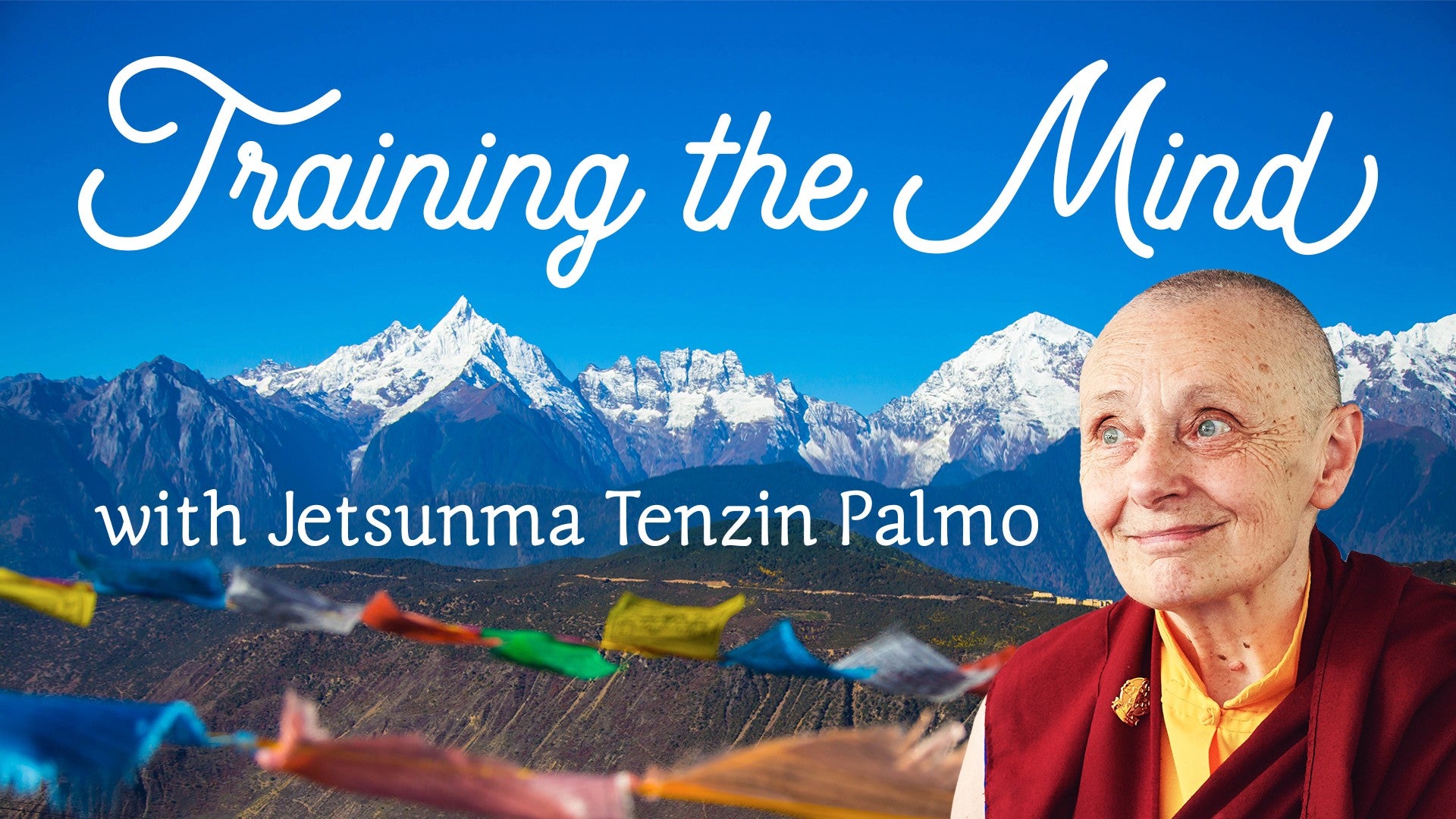Description
About This Video
Transcript
Read Full Transcript
So again, he's saying, the supreme wisdom is not to grasp onto anything, outer or inner, as the self. And in this, of course, is the genuine realization of this, is the peak of Buddhist wisdom to recognize the empty nature of all phenomena. Empty nature doesn't mean it doesn't exist, or as I say, that it's nothing or that it's a void, but that nothing exists from its own side, independently. Everything arises in accordance with causes and conditions and in interdependence with everything else. And to actually recognize that within ourselves on our own mental framework and outwardly manifesting in all external, seemingly external phenomena is considered to be the absolute ultimate wisdom, to recognize that nothing is solid and really existing from its own side.
And that the idea of an inner being and an outer phenomena as looking at each other, but independent, is also regarded as being one of the great sources of our ignorance. We don't understand how the subject and object are totally interdependent, and how much we give to what is outside, how much what is outside gives to what is inside, and that both rely on each other. And they're two sides of the same coin. We think that outer things are completely separate from what's going on inside. We don't understand how they're just a way of looking in the mirror.
So if we realize that, not just intellectually ascent or disassent, but if we actually experience that, then that is regarded as seeing things as they really are, and not the way our ordinary conceptual thinking mind presents things to us. In Buddhism, there are two truths. There is relative conventional truth, and there is ultimate truth. And both are true. I mean, for example, if this table on an ultimate level is empty, and is like space and energy, and quantum physics would say that's true.
It's not this solid thing which we see. But nonetheless, if I hit somebody with it, they would bruise. And so however much I may think, empty, empty, empty, if I bashed you with it, you would know it. And so there's a relative truth, as well as an ultimate truth. And so of course, there are times when if one is in a state of ultimate truth, even if somebody hit you with a thing, you maybe wouldn't bruise.
But on the whole, we have to live in both worlds. And ultimate truth doesn't deny relative truth. I mean, even the most realized masters, even the Buddha, had to go on arms around every day in order to eat, right? I mean, we are, and he grew old and, you know, old age, sickness, and death. You know, so on a relative level, we're following the relative laws, while at the same time on an ultimate level, we are seeing that they are inherently empty.
Lama Sutra Malioni from Colorado, she tells the story of inviting this Lama who was, he was famous for putting his footprints and handprints into rock. This is a very common phenomena. If in a state of seeing the ultimate emptiness of everything, then they impress their hand or foot, then it leaves a very clear impression of the hand or foot. So he was coming to her center. So she thought, oh, she must get a nice print while he's here.
But then she thought, well, I don't want to be too greedy. So I'll just find a little stone, you know, and not a whole hand print. A little stone at least, get a thumb print. So when he came, then she handed him this little stone and said, would you mind putting your little thumbprint on this? And he said, why didn't you find me a bigger stone, then you could have had the whole hand.
And he said, well, you know, I thought, no, we don't want to be presumptuous. So then anyway, so then he did put his thumbprint on it. So she has this stone with a very clear thumbprint. You can see the walls and everything on it. But that's because, but nonetheless, when he walks along the ground, he doesn't sink in it.
Right? I mean, he's still mostly functioning in relative truths, but he can summon ultimate truths that he needs to. Why am I talking about this? What are we talking about here? Okay, so yes, so the supreme wisdom is not to grasp on anything as a self meaning, anything as being self-existent from its own side.
That everything rises in emptiness and interdependence, that nothing from its own side, not even an atom exists, except in interdependence with other atoms and other causes and conditions. Nothing from its own side is self-existent. Nothing arises in conditionality with everything else. So that is called emptiness. Doesn't mean that it's non-existent, but that it rises.
Nothing from itself, even the smallest atom, can exist in total dependence on itself only. It can only rise in interdependence with everything else. So that is in shorthand called emptiness. And so where he's saying that supreme wisdom is not to grasp onto anything as a self, it means that we don't see anything as self-existent from its own side, that everything rises according to causes and conditions, ourselves and external phenomena, and especially that ourselves and external phenomena are very interdependent. That can exist without the other.
Training the Mind with Jetsunma Tenzin Palmo
Comments
You need to be a subscriber to post a comment.
Please Log In or Create an Account to start your free trial.







Ultimate Truth and Relative Truth...
Thank you Jetsunma, emptiness, nothing arises from itself. Interdépendance....